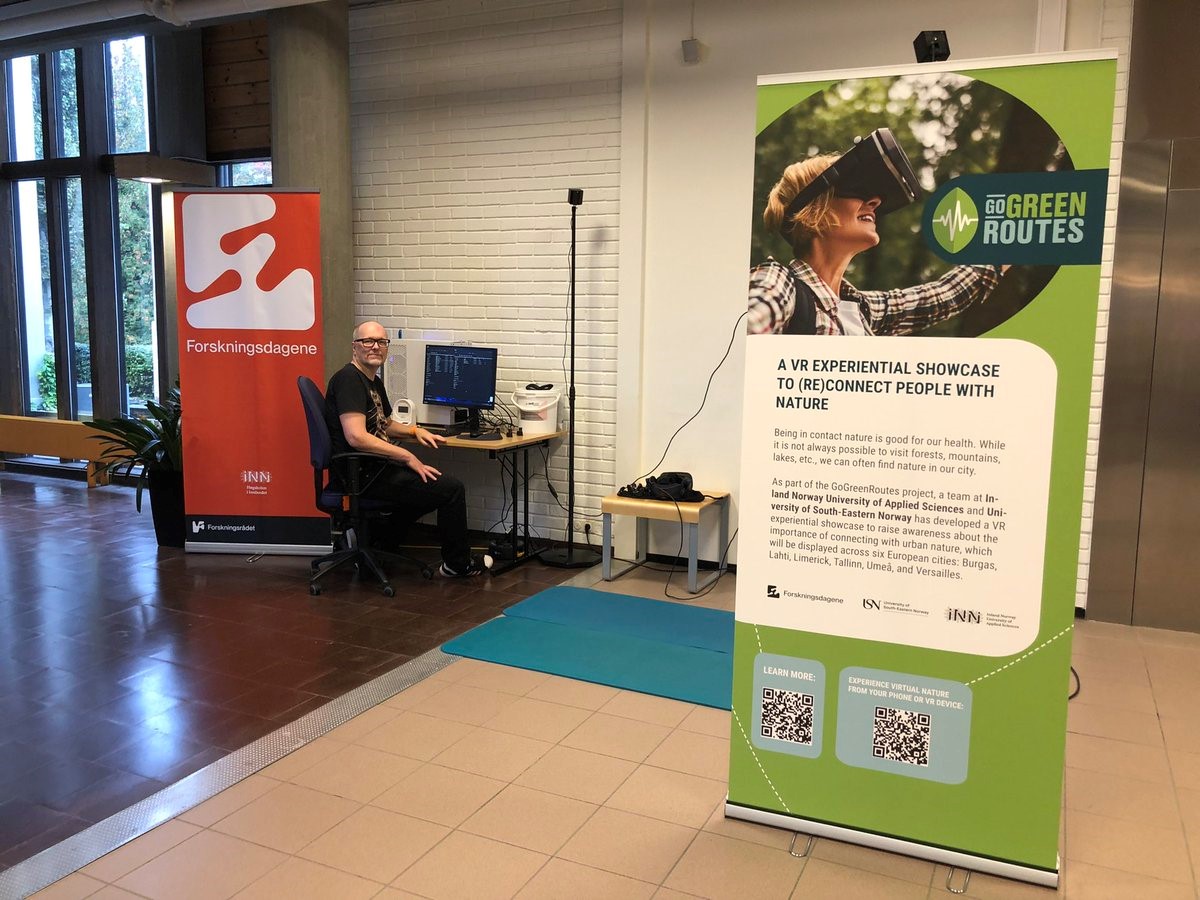A detailed version of the program will be available on the 23rd of October.
The program for CEP 2023 Slight changes might occur.
16th of November 2023
10:00 - 11:00 Coffee & Registration by the South Entrance
11:00 - 14:00 Scientific Presentations in Auditorium G
14:00 - 15:00 Late Lunch Break in Drotten
15:00 - 18:00 Scientific Presentations in Auditorium G and F
19:00 - 21:30 Social Mingling & Dinner in Studenten
21:30 Social Gathering
17th of November 2023
08:30 - 09:00 Morning Coffee, Social Mingling & Registration by the South Entrance
09:00 - 12:00 Scientific Presentations in Auditorium G
12:00-13:00 Lunch Break in Drotten
13:00 - 16:00 Scientific Presentations in Auditorium G and F
Extra activites
There is allways something extra in the Conference on Environmental Psychology. This year we have the pleasure to hava a VR showcase during the conference on Thursday and a workshop with Florian Kaiser after the conferece on Friday.
There will be a VR showcase during the conference as its own part in the detaild program. The workshop will focus on skill building among and will be a great inspiration for future prosjects and cooperation. The showcase will be at the same time as a coffee break and the poster session.

There will be a 2 hour workshop with Florian Kaiser after the end of the conference on Friday evening. The title for the workshop is: Mechanistically explaining behavior with mental attributes. Below is the abstract for the workshop.
Witnessed by many rather complex behavioral models, environmental psychologists treat mechanistic explanation rather nonchalantly. Valid mechanistic explanation is, however, critical, particularly when people seek ways to manipulate given courses of events (e.g., when they wish to leave Earth and fly to the Moon, or when they desire to change their energy- and resource-consumptive ways of living). In this workshop, we identify the problem in a defective methodology, particularly in an insufficient validation practice. How can we substantiate measures of mental attributes (e.g., environmental attitude) to represent these attributes validly? The problem is that measures of mental attributes are caught in what some see as an inextricable conundrum. In this conundrum, empirically acquiring knowledge about a mental attribute requires knowledge about how to validly measure the attribute, and vice versa. Knowledge about the valid measurement of a mental attribute necessitates pre-existing knowledge about said attribute (e.g., its valid indicators).



